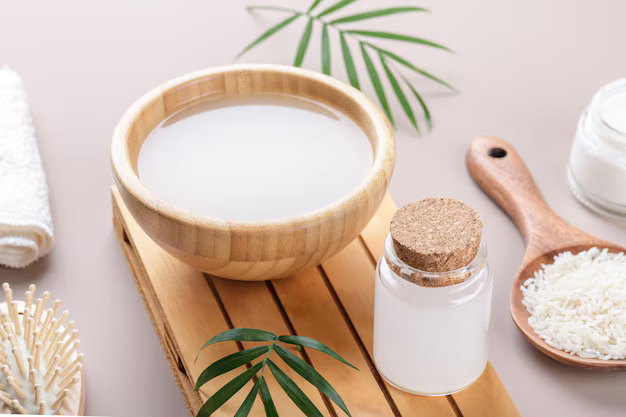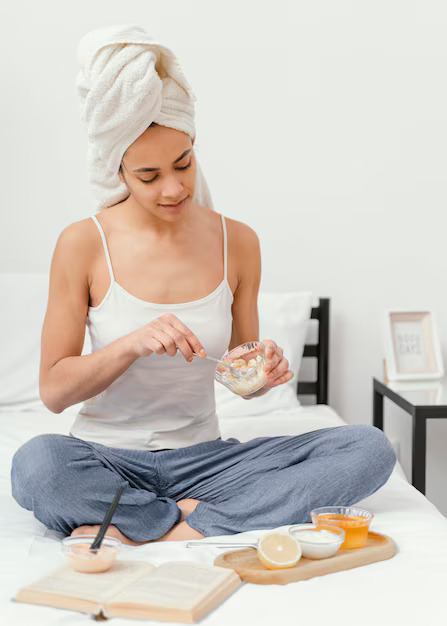How To Use Rice Water For Skin
Rice water has been a well-kept beauty secret in many Asian cultures for centuries. Known for its soothing, anti-aging, and skin-brightening properties, rice water is becoming a popular DIY skincare solution around the globe.
At www.sportandmedicalsciences.org, we always aim to provide science-backed, holistic, and accessible skincare strategies. In this comprehensive guide, we’ll dive into everything you need to know about how to use rice water for skin, from its benefits to preparation methods, and how to incorporate it into your skincare routine.

What is Rice Water?
Rice water is the starchy liquid left over after soaking or cooking rice. Rich in vitamins, minerals, amino acids, and antioxidants, it has long been used in traditional medicine and beauty regimens across cultures.
Historical records suggest that Japanese women used rice water for hair and skin care during the Heian period, while Chinese women from the Yao ethnic group still use fermented rice water for youthful skin and long hair.
Why Use Rice Water for Skin?
Rice water is praised for its skin-enhancing properties due to its nutrient-rich profile:
- Vitamins B, C, and E: These help in reducing pigmentation, brightening the skin, and improving skin elasticity.
- Amino Acids: Essential for skin regeneration and repair.
- Ferulic Acid: A powerful antioxidant that helps fight free radicals.
- Inositol: A carbohydrate compound that promotes cell growth and slows down the aging process.
Key Benefits of Using Rice Water on Skin
1. Brightens the Skin
Rice water contains enzymes known to brighten skin and fade dark spots. Regular use can result in a clearer, more radiant complexion.
2. Reduces Acne and Breakouts
Its anti-inflammatory and astringent properties help soothe irritated skin, reduce redness, and prevent acne-causing bacteria.
3. Anti-Aging Effects
Rice water boosts collagen production, improves skin elasticity, and reduces the appearance of fine lines and wrinkles.
4. Improves Skin Barrier Function
Rice water helps strengthen the skin’s barrier, making it more resilient against environmental aggressors.
5. Hydrates and Tones the Skin
Used as a toner, rice water helps to hydrate and tone the skin, leaving it refreshed and balanced.
How to Prepare Rice Water for Skin Care
There are three main ways to prepare rice water:
1. Soaking Method (Quickest)
Steps:
- Rinse 1/2 cup of uncooked rice to remove dirt and impurities.
- Add 2-3 cups of water to the rinsed rice.
- Let it soak for 30 minutes.
- Strain the water into a clean container.
2. Boiling Method (More Concentrated)
Steps:
- Cook rice with extra water.
- Once the rice is cooked, strain the water.
- Let the rice water cool before storing.
3. Fermented Method (Most Potent)
Steps:
- Follow the soaking method.
- Instead of using it immediately, leave the strained water in a jar at room temperature for 24-48 hours to ferment.
- Store in the refrigerator after fermentation.
Tip: Fermented rice water has a slightly sour smell and may be diluted before applying to the skin.
How to Use Rice Water for Skin: Application Methods

1. As a Facial Cleanser
Use rice water as a gentle facial cleanser to remove impurities.
How:
- Soak a cotton pad in rice water.
- Wipe across the face in circular motions.
- Rinse with lukewarm water.
2. As a Toner
Rice water helps tighten pores and restore pH balance.
How:
- Pour rice water into a spray bottle.
- Spray onto your face after cleansing.
- Pat gently until absorbed.
3. As a Face Mask
Mix rice water with natural ingredients to boost skin benefits.
DIY Face Mask Recipes:
- Rice Water + Honey: For hydration and glow.
- Rice Water + Aloe Vera Gel: For soothing and calming irritated skin.
How:
- Mix equal parts rice water and chosen ingredient.
- Apply to the face for 15-20 minutes.
- Rinse thoroughly with cool water.
4. As a Skin Mist
How:
- Fill a spray bottle with rice water.
- Use it as a refreshing mist throughout the day.
5. As a Bath Soak
Add rice water to your bath for an all-over body treatment.
How:
- Pour 1-2 cups of rice water into your bath.
- Soak for 15-20 minutes.
- Pat dry and moisturize.
How Often Should You Use Rice Water on Your Skin?
Start with 2-3 times per week. For sensitive skin, test a small patch first to ensure no allergic reaction. Gradually increase frequency based on your skin’s tolerance.
Tips for Storing Rice Water Safely
- Store rice water in a clean, airtight container.
- Keep it in the refrigerator to preserve freshness.
- Use within 5-7 days for best results.
Possible Side Effects and Precautions
Though generally safe, rice water might not suit everyone. Some potential issues include:
- Breakouts: Especially if left on the skin too long or used too frequently.
- Allergic Reactions: Perform a patch test on the inside of your arm before applying to your face.
- Dryness: May occur in very dry or sensitive skin types.
Conclusion
Rice water is an ancient remedy with modern relevance. Its ability to brighten, tone, and rejuvenate the skin makes it a natural, low-cost addition to any skincare regimen. With proper preparation and consistent use, rice water can help you achieve healthy, glowing skin.
Before incorporating any new skincare method, always perform a patch test and consult with a dermatologist if you have any pre-existing conditions. Stay tuned to www.sportandmedicalsciences.org for more science-backed beauty and wellness tips!
Frequently Asked Questions
Can I leave rice water on my face overnight?
It is not generally recommended to leave rice water on overnight, especially if it is fermented, as it may irritate or dry out the skin.
Is rice water suitable for all skin types?
Yes, but sensitive or extremely dry skin types should start with diluted rice water and monitor results.
Can I use rice water daily?
You can use it daily if your skin tolerates it well. Start slow and increase usage gradually.
Should I rinse off rice water after applying?
It depends on the use. When used as a toner or mist, it can be left on. For masks or cleansers, rinse off after application.
References
- https://www.ncbi.nlm.nih.gov/pmc/articles/PMC6017965/
- https://www.healthline.com/health/rice-water-for-skin
- https://www.medicalnewstoday.com/articles/rice-water-for-skin
- https://www.webmd.com/beauty/rice-water-for-skin
- https://pubmed.ncbi.nlm.nih.gov/17348990/
- https://www.sciencedirect.com/science/article/abs/pii/S1011134413000626
.